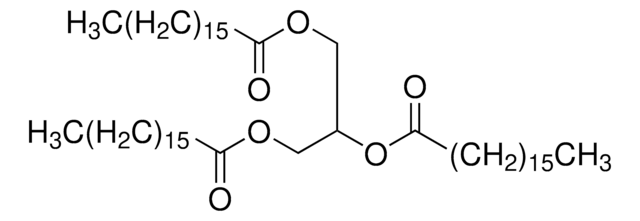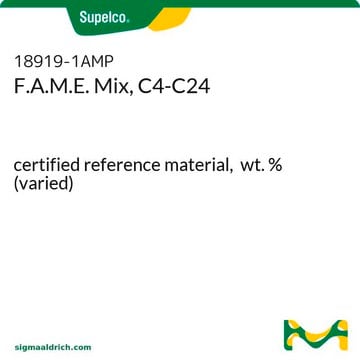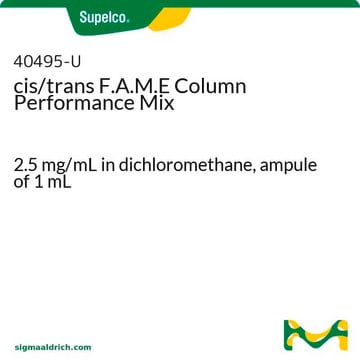T3882
Glyceryl tritridecanoate
≥99%
Synonym(s):
TG(13:0/13:0/13:0), 1,2,3-Tritridecanoylglycerol, Tritridecanoin (C13:0)
About This Item
Recommended Products
biological source
synthetic
Quality Level
Assay
≥99%
form
powder
functional group
ester
lipid type
neutral glycerides
shipped in
ambient
storage temp.
−20°C
SMILES string
CCCCCCCCCCCCC(=O)OCC(COC(=O)CCCCCCCCCCCC)OC(=O)CCCCCCCCCCCC
InChI
1S/C42H80O6/c1-4-7-10-13-16-19-22-25-28-31-34-40(43)46-37-39(48-42(45)36-33-30-27-24-21-18-15-12-9-6-3)38-47-41(44)35-32-29-26-23-20-17-14-11-8-5-2/h39H,4-38H2,1-3H3
InChI key
UDXANBFMQUOKTQ-UHFFFAOYSA-N
Related Categories
Application
Storage Class Code
11 - Combustible Solids
WGK
WGK 3
Flash Point(F)
Not applicable
Flash Point(C)
Not applicable
Personal Protective Equipment
Certificates of Analysis (COA)
Search for Certificates of Analysis (COA) by entering the products Lot/Batch Number. Lot and Batch Numbers can be found on a product’s label following the words ‘Lot’ or ‘Batch’.
Already Own This Product?
Find documentation for the products that you have recently purchased in the Document Library.
Customers Also Viewed
Our team of scientists has experience in all areas of research including Life Science, Material Science, Chemical Synthesis, Chromatography, Analytical and many others.
Contact Technical Service












